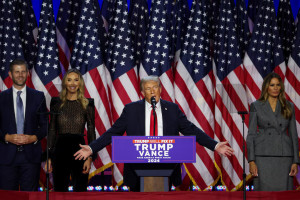Columns
Empowering citizens through participatory budgeting
It embodies fundamental principles of deliberative democracy, social equity and citizen empowerment.
Bimal Pratap Shah
Nepal’s Finance Minister, Barsha Man Pun, on May 28 unveiled a budget estimate of Rs1.86 trillion for the fiscal year 2024-25, followed by similar announcements from finance ministers of the seven provinces on June 15. However, many Nepalis feel their government is indifferent to household struggles to secure enough food, leading some to seek better opportunities abroad.
There is a growing concern that the budget formulation process and fund allocation lack public participation, which raises questions about transparency and democratic accountability. This sentiment, particularly resonant among the youth, underscores broader global discontent with governance decisions that affect citizens’ lives. As cities and municipalities worldwide explore diverse approaches to address these issues, Nepal must shed its 18th-century mindset and take proactive steps.
Participatory budgeting
A wave of participatory policy reforms has emerged worldwide, offering remedies to make democracy more functional and inclusive. Facilitated by advancements in internet and smartphone technology, as well as democratic experimentation, these reforms aim to rejuvenate democracy by fostering inclusive governance and civic engagement. At the forefront of these efforts is participatory budgeting, empowering citizens to identify community needs, collaborate with elected officials to formulate budget proposals and vote on the allocation of public funds.
Such budgeting represents democratic governance and captures widespread attention for its transformative potential in enhancing citizen engagement and advancing social justice within public finance. It has evolved into a global phenomenon, catalysing democratic decision-making processes surrounding the allocation of public funds within local communities.
Participatory budgeting embodies fundamental principles of deliberative democracy, social equity and citizen empowerment. It represents a departure from conventional top-down approaches to budgeting, advocating for the active involvement of citizens in shaping spending priorities and resource allocations. By facilitating direct citizen engagement in budgetary decision-making processes, participatory budgeting challenges traditional notions of representative democracy, fostering a more inclusive and participatory form of governance similar to the future of democracy: Direct democracy.
The process typically unfolds through structured stages, encompassing information dissemination, idea generation, deliberation, voting and implementation. These stages are characterised by a commitment to inclusivity, transparency and accountability, ensuring that diverse voices are heard, decisions are made through informed deliberation, and outcomes are responsive to community needs and preferences. As exemplified by the experiences of various communities worldwide, participatory budgeting initiatives engender a sense of civic ownership, social cohesion and trust in government among participants, fostering a culture of active citizenship and collective responsibility.
Practicing countries
Many progressive capital cities from the developed world, notably Seoul and Paris, have distinguished themselves by implementing participatory budgeting initiatives. In Paris, the initiative began in 2014, enabling residents to propose and vote on projects to enhance their neighbourhoods. Through digital platforms and public gatherings, Parisians allocated millions of euros toward community gardens, cycle lanes and cultural events, breathing new life into urban spaces and fostering heightened civic engagement.
Similarly, Seoul's participatory budgeting initiative, "Democracy Seoul," launched in 2012, stands as the first programme of its kind in a city with a population exceeding 10 million. Leveraging online platforms and face-to-face meetings, Seoul’s citizens collectively prioritise projects ranging from public infrastructure to welfare services and cultural initiatives. This bottom-up approach cultivates a sense of community ownership and collaboration, enriching the democratic fabric of governance.
Participatory budgeting has proven successful even in developing countries with limited internet access. Its introduction in the early 2000s marked a significant shift toward citizen-led decision-making in La Paz, Bolivia. Through neighbourhood assemblies and public gatherings, residents actively prioritise projects, ranging from crucial infrastructure improvements to vital social programmes, focusing on marginalised communities' needs. Nepal's municipalities would benefit from similar participatory budgeting initiatives.
India has emerged as a regional leader in participatory budgeting initiatives. Kerala pioneered this approach in 1996, empowering citizens in village meetings to determine 40 percent of state revenues under the Kerala People’s Campaign. From education to agriculture, Kerala embodies grassroots democracy and community empowerment. Progressive Indian cities, starting with Bengaluru in 2001, have embraced participatory budgeting, involving resident associations in municipal budgets. Pune successfully implemented participatory budgeting in 2005, annually inviting citizen proposals and enhancing local governance through elected representatives. Citizens have a month to submit their proposals by filling out the ‘Citizen Suggestion Form’, available online and at the ward office.
Participatory budgeting indeed highlights inclusive approaches crucial for responsive democratic societies. While indicative of progress, it must evolve beyond outdated paradigms. A contemporary fiscal framework is essential, enabling direct citizen influence on tax allocation through digital innovations. Taxpayers should oversee fund deployment, scrutinising budget proposals from political entities, governmental bodies, or AI-driven financial structures to ensure public resources align with stakeholders’ priorities.
The era of unilateral decisions by political parties, especially ministers and bureaucrats, particularly within the Ministry of Finance, regarding taxpayer capital is swiftly ending. This shift toward semi-direct democracy paves the path for genuine direct democracy, fostering a more engaged and participatory future.




 23.12°C Kathmandu
23.12°C Kathmandu














